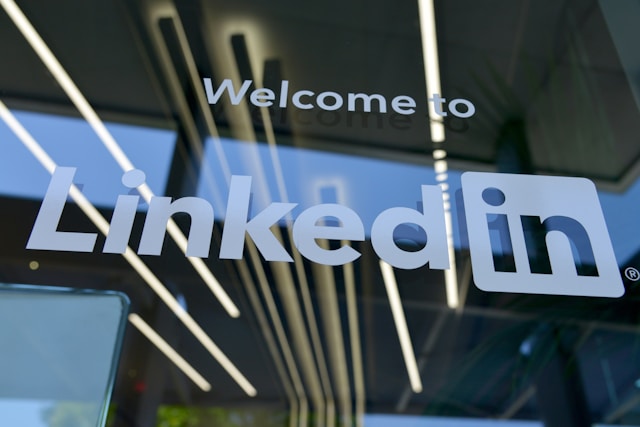If you ask just about any content writing expert, they’ll tell you that high-quality articles are the main reason why people visit our website. Like any other inbound marketing process, the success of our content creation efforts relies on providing the target audience with quality information they can’t find anywhere else.
Unfortunately, creating quality content is much easier said than done. Most people simply regurgitate existing pieces from other blogs, not giving users anything new to read about. So, when you check the top search engine results, you’ll notice that every blog post resembles the next one.
Aside from hiring an elite SaaS content agency, there are lots of other things that can remedy the issue. For example, many companies prefer using marketing automation for this process, putting artificial intelligence software in charge of creating engaging content. Not only do these tools create perfect posts for your B2C and B2B marketing, but they also do it much quicker than human writers.
3 Benefits of AI Content Marketing
Whether you’re a SaaS content marketing agency or a small independent blog, you can reap numerous benefits from AI-generated and modified posts:
1. Faster Content Creation
It takes approximately 30 seconds for a quality AI to produce a 3,000-word blog post. Whether you’re using ChatGPT, Jasper, or some other software, you can pump out dozens of quality posts for your blog and clients in a single day.
While the posts might not be of the same quality as those written by human writers, they can still significantly boost your content production. What’s better, instead of using a large writing team, now you can rely on a handful of individuals to edit AI-generated pieces.
2. Better Marketing Results
The SaaS industry is all about integrations and APIs. You can easily mix AI generators with Gmail and email marketing tools, Google Docs, Frase, SurferSEO, and similar platforms. As a result, you can control the entire digital marketing process from a single dashboard.
Even better, you can track the use of keywords, metadata, and content structure to optimize your articles for search engines. By relying on predictive platforms and content optimization scores, you can assess the article’s performance before publishing it in WordPress.
3. Process Streamlining
Given that SaaS marketing is much faster than your regular content creation, and given that you have fewer employees to worry about, the whole process should be more streamlined. The entire content strategy will be controlled by a small team of top-tier professionals, minimizing errors and making everything smoother.
This will also cut down on overhead software costs that are common for larger teams. Instead of purchasing bigger team plans for a SaaS product, you can go with the basic versions for just one or two people. The streamlining also helps with role assignments as there won’t be many “cooks in the kitchen.”
5 Categories of AI Content Tools
Nowadays, when we talk about AI tools, most people think of generators like ChatGPT or Google Bard. However, the truth is that the market was littered with artificial intelligence software way before these two platforms first appeared. Even the biggest Google software, like Google Analytics and Google Search Console, rely on some sort of AI functionality for basic tasks.
That being said, these are the main AI software categories that can help you with content production:
1. AI Generators
AI generators are the first thing that comes to mind when we mention marketing automation, deep learning, and artificial intelligence. In the last couple of years, these programs have made a major stir on the global scene, showing us what AI can do, not only for marketers but also for casual users.
Just about any B2B SaaS marketing agency can benefit from a tool such as GrowthBar, WriteSonic, or Jasper. Besides their ability to create social media posts, emails, and articles from scratch, these tools are also fantastic for editing small parts of the text. That way, you can improve certain content sections without getting flagged by the checkers.
2. Analytics Tools
Artificial intelligence can go through massive quantities of data to extrapolate various insights. Aside from giving us valuable information to fuel our marketing campaign, some of the tools also provide predictive features, helping us determine outcomes before posting.
Another fantastic thing about these SaaS products is that they can make sense of various conflicting information. They can “chew” the data that seems irrelevant to the human eye and make it into valuable company information. What’s better, you get all these insights within the same dash, allowing you to perform various growth hacking tasks such as SaaS SEO, social media marketing, and paid campaigns more efficiently.
3. Content Optimization Tools
Another major category, which has grown immensely in the last few years, is content optimization tools. This type of software can analyze results within the search engines and assess the performance of the biggest competitors. Then, it can create blueprints for creating highly converting articles.
The tools can show you how many headings and words you need to have to optimize a particular keyword for Google search. You will also see which keywords are relevant for that query and how many links the best-performing posts have received.
Optimization tools have become an integral part of just about any content marketing strategy, allowing businesses to create perfect posts that would satisfy both users and search engines.
4. AI Editors
AI editors don’t necessarily create content from scratch, although they might have such features. Instead, they can repurpose various posts, from images to texts and sounds. A good example of an editor would be Canva, which a B2B SaaS company can use to create engaging content for its clients.
The great thing about this type of software is that it can make some arduous processes much easier. Most people don’t realize, but editing just one image might take hours and hours of your daily schedule. Some of them even execute tasks with a single click of a button, without any human interference.
5. Task-Specific Tools
Besides these larger suites, there are all sorts of nifty software that specialize in a particular task. For example, if you’re looking to improve grammar in your articles, you can go with Grammarly, which is a banner-holder within its respective category. Similarly, you can get YouTube downloaders and background removers to execute specific content tasks.
While these platforms might not be your bread and butter, you might still use them from time to time. The good thing about these specialized tools is that most of them are free or cheap, so you won’t have to waste that much money on them.
Last Thoughts
If you’re serious about content creation and want to improve your traffic and brand awareness, you should definitely explore these magnificent platforms. Aside from streamlining your marketing processes, they can significantly improve your performance on Google and social platforms.
AI software is great for any company providing content marketing services, but it can also work for smaller blogs. Whatever the case, take your time exploring the available options before buying the software that is most suitable for your marketing goals!
Author Bio:
Sergey Solonenko is the founder of Algocentric Digital Consultancy, an active digital strategist and a fractional CMO for many B2B SaaS brands embracing digital transformation. At Algocentric Digital Sergey’s focus is on empowering every B2B SaaS brand who is looking to scale their demand generation program. Sergey’s digital marketing experience over the last 10 years has allowed him to become a digital evangelist focused on improving SaaS demand generation programs and consulting on best practices around account based marketing, sales and marketing team alignment, setting up better lead qualification systems and improving user experience through personalization by aligning martech with key marketing KPIs that ladder up to faster MRR for B2B SaaS brands.






